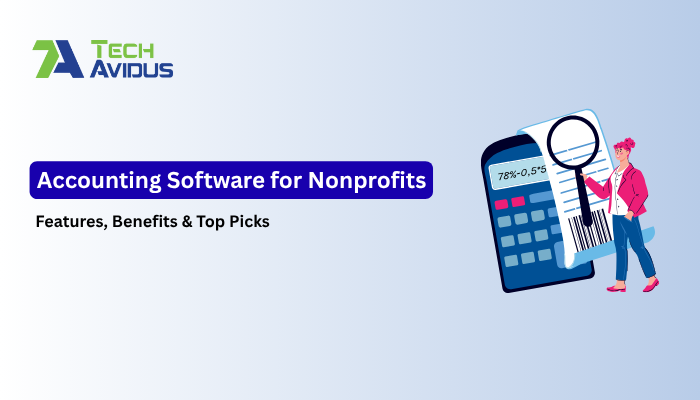
Nonprofits operate with a unique financial structure. Unlike businesses, they must track donations, grants, fund restrictions, and compliance reports — all while maintaining public trust and transparency. Yet many nonprofits still rely on manual spreadsheets or general-purpose tools like QuickBooks that fail to meet sector-specific needs.
This blog explores why software for nonprofit accounting is essential, which features matter most, and how to choose the right solution — especially if you’re a nonprofit leader, finance officer, or administrator looking to streamline reporting and reduce accounting stress.
While QuickBooks is widely used, it was designed for for-profit accounting. Here’s where it falls short for nonprofits:
Result? Time-consuming workarounds, higher risk of reporting errors, and frustration during audits or grant applications.
Many small and mid-sized nonprofits still rely on Excel or Google Sheets for bookkeeping. This may seem cost-effective, but it comes with hidden costs:
These challenges create friction not only for accountants but also for program managers, board members, and funders.
The right nonprofit accounting software should support:
1. Fund Accounting - Track funds based on restrictions (e.g., donor-designated, grant-based). Fund accounting is the cornerstone of nonprofit financial transparency.
2. Donor Tracking & CRM Integration - Many modern systems now offer or integrate with donor management modules. This lets you link contributions directly to accounting records.
3. Grant Management Module - From budgeting to compliance, grant management modules help ensure every cent is tracked and reported as required by funders.
4. Automated Financial Reporting - Generate audit-ready financial statements, Form 990, board reports, and donor summaries — in minutes.
5. Cloud-Based Accessibility - Cloud-based nonprofit accounting software enables remote access, real-time updates, and better data security.
6. AI-Powered Insights - Some newer tools now use AI to flag anomalies, predict funding gaps, or suggest budget optimizations — a game-changer for strategic planning.
Different types of nonprofits need different things:
With the right system:
You can reduce time spent on reporting by over 50% and dramatically improve internal transparency.
Cloud-Based Software:
Desktop-Based Software:
Most nonprofits now opt for cloud-based tools due to flexibility and lower infrastructure costs.
Don’t Just Buy – Think Custom
Every nonprofit is different. If off-the-shelf solutions fall short, you may want to consider custom nonprofit software development or even full-scale nonprofit app development for integrated accounting, CRM, and program monitoring in one place.
Investing in the right software for nonprofit accounting isn't just a financial decision — it’s a mission-critical one. The right system will give you:
Q1: Why can’t nonprofits use regular accounting software?
Nonprofits must track funds with restrictions and generate specific reports like Form 990. Regular tools don't support this natively.
Q2: What's the difference between fund accounting and regular accounting?
Fund accounting segments revenue based on purpose, helping nonprofits stay compliant and transparent with how donations and grants are used.
Q3: How much does nonprofit accounting software cost?
Prices vary widely. Some offer basic free tiers; others are custom-quoted. Contact us for a free consultation to match your needs and budget.
Q4: Can we integrate our donor CRM with accounting software?
Yes — many platforms offer integrations or APIs. If you need help connecting systems, our nonprofit app development team can assist.

Pankaj Sharma is a nonprofit tech consultant at TechAvidus, helping NGOs use digital tools like CRM and fundraising platforms to boost impact. He focuses on scalable, affordable solutions that improve efficiency and donor engagement.
We have the most experienced Top 1% of Tech Talent Teams who can deliver superior technology solutions.
All Rights Reserved. Copyright © 2025 | TechAvidus